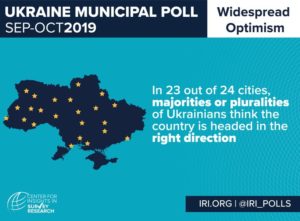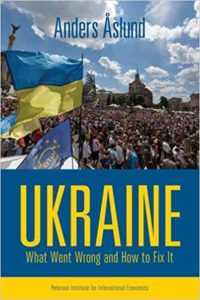Ukraine has overwhelmingly voted for fundamental change and is now led by people who are committed to making their country a modern democracy committed to liberty and the rule of law, notes Konstantin Sonin, a professor at the University of Chicago’s Harris School of Public Policy and an adjunct professor at the Higher School of Economics in Moscow.
The challenges that Volodymyr Zelensky faces are enormous, yet he has demonstrated his commitment to reform, with sweeping personnel changes taking place at all levels of government, he writes for Project Syndicate:
 Oleksiy Honcharuk, the new prime minister, is 35 years old and, like Zelensky, has never served in government. The minister of economic development, Timofiy Mylovanov, is a former professor of economics at the University of Pittsburgh and current president of the Kyiv School of Economics (KSE), a small university that has established itself as a leader in economics education in Ukraine.
Oleksiy Honcharuk, the new prime minister, is 35 years old and, like Zelensky, has never served in government. The minister of economic development, Timofiy Mylovanov, is a former professor of economics at the University of Pittsburgh and current president of the Kyiv School of Economics (KSE), a small university that has established itself as a leader in economics education in Ukraine.
Reports that Russian President Vladimir Putin has replaced his chief troublemaker Vladislav Surkov as Ukraine policy curator with trusted problem solver Dmitry Kozak appear to indicate a coming change in Kremlin policy towards Ukraine, says Anders Åslund, a senior fellow at the Atlantic Council and author of “Russia’s Crony Capitalism: The Path from Market Economy to Kleptocracy.” One possibility is a new version of the Kozak Plan for occupied eastern Ukraine. Another option is that Kozak has been appointed to integrate the region into Russia. In any case, Kremlin policy towards eastern Ukraine is now likely to change.
 Ukraine’s precarious location — on the friction point between Russian authoritarianism and Western democracy — makes attention from the United States critical. Meetings and even photo opportunities with American VIPs are invested with huge significance, The Washington Post reports (HT:FDD).
Ukraine’s precarious location — on the friction point between Russian authoritarianism and Western democracy — makes attention from the United States critical. Meetings and even photo opportunities with American VIPs are invested with huge significance, The Washington Post reports (HT:FDD).
The daughter of Ukrainian refugees who fled to Great Britain during World War II, Nadia Diuk (above) dedicated her life and work to the advancement of freedom and democracy not just in Ukraine, but throughout the entire region that had been dominated by, and later liberated from, the Soviet Union.
Nadia came to NED as a program officer in 1987, three years after the Endowment’s founding, and went on to lead the NED’s grant making in Europe and Eurasia, providing crucial support to countless civil-society groups throughout Eastern Europe and the Soviet Union. Later in her career, she added Latin America and the Caribbean and Africa programs to her NED portfolio. On January 22, 2019, a day before her passing, Nadia received The Order of Princess Olga (III degree), one of Ukraine’s highest state honors, from the President of Ukraine in recognition of her life’s work in furthering democracy and supporting Ukraine’s sovereignty. Read more here.







